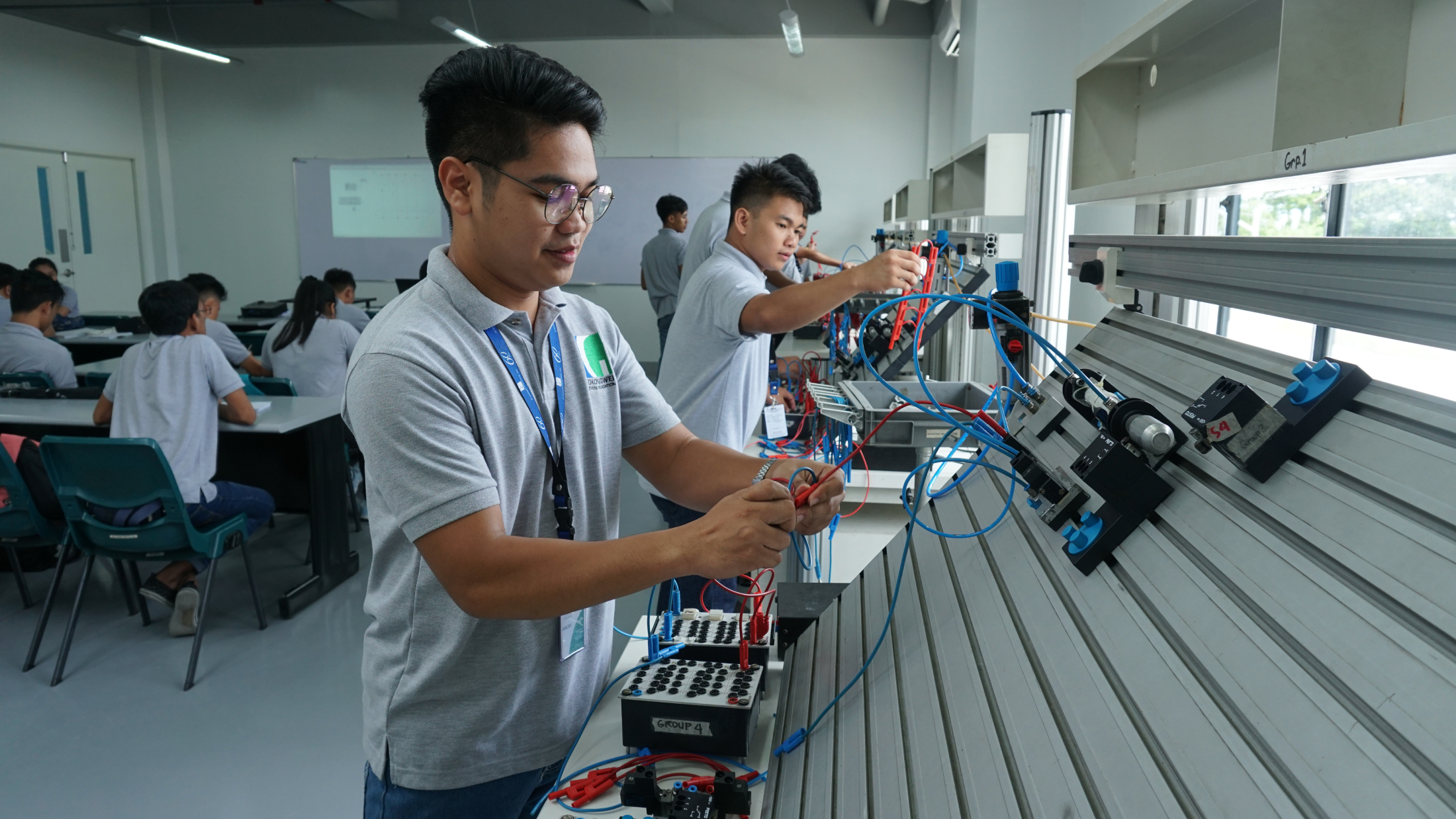COURSE OVERVIEW:
The course aims to teach the participants the concepts of pneumatics, and the different components of pneumatics, their functions, operations, & applications. It also aims to teach them to detect abnormalities, make necessary reports, and perform routine preventive maintenance activities.
This course also deals with the development of knowledge and skills in operating basic automation circuits in industrial pneumatic-controlled equipment. It includes both the physical principles and basic control applications of industrial pneumatics. Sufficient time is allocated for practical exercises.
This course also includes Basic Equipment Care (BEC) practices that focus on keeping equipment functioning optimally by reducing the frequency of breakdowns, and the need for long, costly rebuilds and by circumventing many equipment malfunctions and intermittent equipment problems.
COURSE OBJECTIVES:
On completion of this course, participants will:
- Be able to understand basic pneumatic control diagrams;
- Be able understand pneumatic work instruction manuals;
- Be able to identify problems or abnormal conditions and make necessary reports; and
- Be able to maintain order and practice safety with pneumatic equipment when doing basic preventive maintenance activities.



